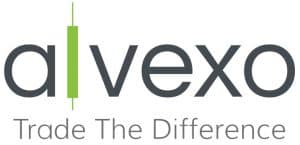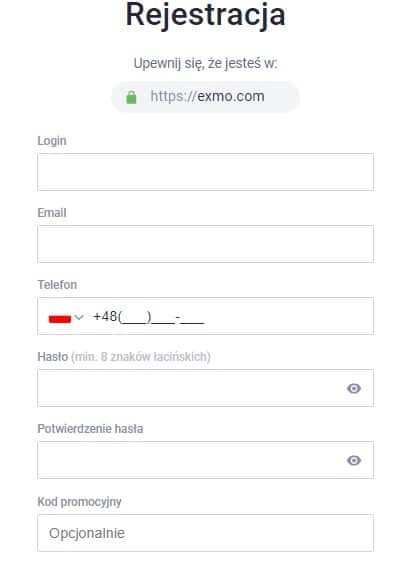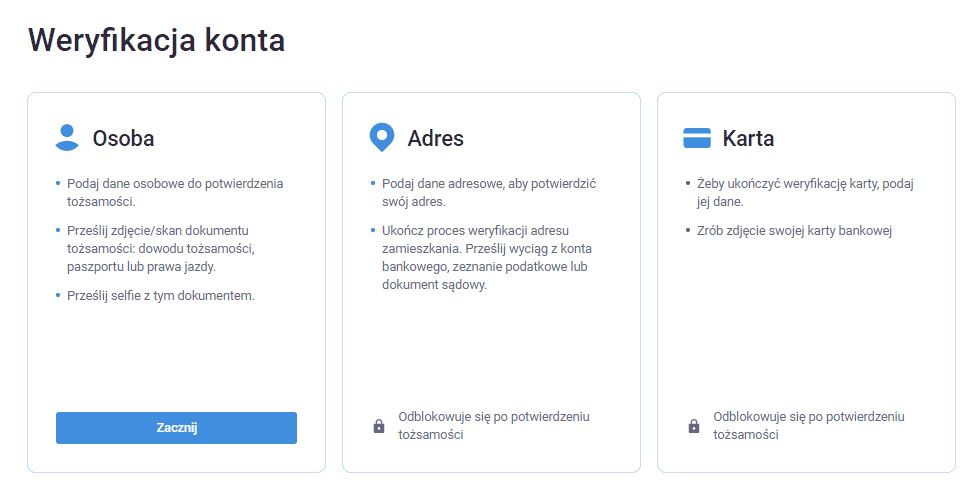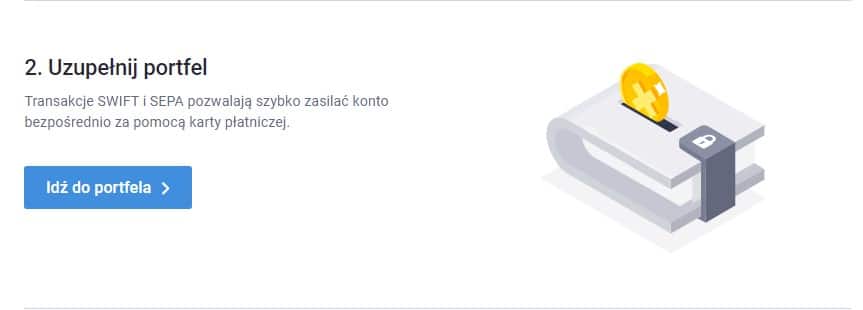Najlepszy Portfel Ethereum w 2026 Roku w Polsce. Który Wybrać?
Imagine you’ve managed to accumulate a few million euros worth of ether. You probably know how to take care of a similar amount in cash. But how do you store cryptocurrencies?
Recently, the problem of hacker attacks has been growing. Their targets are not only crypto exchanges, but also the wallets of private investors. Are you wondering which cryptocurrency wallet to choose? Don’t make a hasty decision. Otherwise, you will risk losing your invested capital.
Instead, read the article below to find out which is the safest option for storing Ethereum . We’ll also explain how crypto wallets work and what you should look out for.
When creating the wallet ranking, we considered security, convenience, additional features and ease of use. Check out which Ethereum wallet turned out to be the most versatile!
Best ethereum wallets:
- Exmo – One of the most universal wallets. It is suitable for storing ethereum in small amounts
- Crypto.com – A multi-functional wallet that you can use as a mobile app, on your browser or in desktop form.
- Alvexo – An online broker that offers trading in a range of assets in the form of CFDs.
- Libertex – The platform does not provide a wallet, but allows commission-free trading of ETH CFDs.
Best Ethereum Wallets 2026: Ranking
There are various crypto wallets available on the market. Choosing the best wallet is not easy . Some of them are inconvenient, have a limited selection of currencies, and others do not provide enough protection. Wondering which one to choose?
We’ve tested a number of Ethereum wallets to help you choose the right one . Below are the safest ones.
1. OKx – cryptocurrency wallet for beginner investors
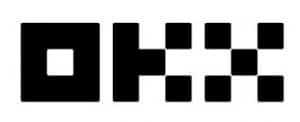
It is convenient because it connects to a cryptocurrency exchange (the platform has an accessible interface, provides over 140 digital tokens and more than 400 trading pairs, e.g. BTC and USDT).
OKx has many payment options and does not require deposit fees. The platform also has a beginner’s guide.
In addition, the wallet offers easy access to over 3,000 non-fungible tokens and thousands of DApps. Web3 is a multi-chain wallet that supports both EVM and non-EVM chains. It gives the client access to DApps on different chains without having to switch wallets.
OKx Wallet is a decentralized non-custodial wallet. This means that as a client, you are responsible for your private key and therefore also for your digital assets.
Only you have full control over the key and access to your coins at all times and from anywhere.
With the wallet you can also shop, trade, create popular NFTs, and stay up to date with your favorite communities.
OKx Wallet is easy to use. Just install the appropriate browser extension to connect existing wallets or create a new one. You can also download an app (mobile wallet) that will give you access to your assets from your phone.
2. Exmo – universal ethereum wallet

You can use both the web and mobile versions of the wallet. This is a convenient option, thanks to which you can easily conduct frequent cryptocurrency transactions.
The Exmo interface is intuitive . To start using the platform, create an account and generate a wallet address. That’s it.
Exmo is a good type of wallet for storing Ethereum in small amounts . However, remember that using the wallet is high-risk because it is connected to a cryptocurrency exchange. These, in turn, are often hacked.
The wallet is convenient and easy to use. It is therefore suitable for people who want to make transactions quickly and for investors who are taking their first steps in the crypto world.
Exmo offers additional useful features :
- Creating templates – saves time;
- Analytics – makes analyzing your portfolio, profits and losses more convenient.
3. Crypto.com – Multifunctional Ethereum Wallet

As with OKx, you are responsible for and have control over your private key .
Crypto.com offers discounts on over 25 tokens. If you use DeFi Wallet, you will also review decentralized applications .
You can share NFTs using the platform. Tokens are supported in many formats, on various blockchains (they are based on the Ethereum blockchain, among others). DeFi Wallet allows you to exchange tokens of many networks, including Ethereum, Cronos, Cosmos, and others.
The wallet also allows you to manage transfers . Choose your preferred sending speed. The ETH Gas Meter provides real-time updates on gas fees and transaction speeds.
Want to use your desktop wallet? Upgrade your wallet . Connect your DeFi Wallet app to your desktop browser. Send and receive other cryptocurrencies , view balances, and easily confirm DApp transactions—all without having to switch devices.
In addition to the app and browser-based options, a DeFi Desktop Wallet is available .
Importantly, Crypto.com will allow you to restore your DeFi wallet using a 12-word recovery phrase.
How does an ethereum wallet work?
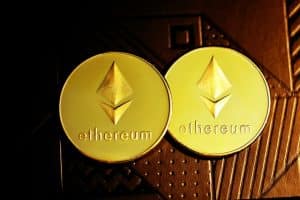
An ethereum account is used to store cryptocurrencies. You will use it to send coins and perform operations such as viewing your account balance or making transactions.
Private Key vs Public Key
Ethereum wallets are primarily used to store coins. They have two keys associated with them: a public key and a private key . The private key gives you access to your account.
The public key is the address you get when you send funds. You can also share it with others.
To access ether, you need private keys . In the ethereum blockchain, each private key is associated with a specific number of ETH coins.
Ethereum wallets are designed to provide users with a secure method of storing their private keys. You decrypt the wallet with a passphrase of your choice.
Types of cryptocurrency wallets
There are many types of Ethereum wallets. Depending on the functions and features, we can divide them into different categories and subcategories. Let’s analyze the division of wallets together.
Hot ethereum wallets

The software is easy to install and configure . It allows you to make frequent transactions.
Hot wallets do have a downside, though – you have to trust the wallet organization storing your keys, as it can be hacked.
In exchange for convenience, you accept a greater risk of losing your capital than when using an offline wallet.
- Online wallets: This is a software wallet that can be accessed via a web browser.
- Desktop wallets: These run as an application on your computer. Windows, macOS, or Linux devices are most commonly used to run desktop wallets.
- Mobile Wallets: Ethereum wallets that run on mobile devices, in the form of apps. The most popular wallet software runs on iOS and Android for smartphones and tablets.
Hot wallets include the aforementioned software wallets , which include online, stationary and mobile wallets.
Cold wallets
Cold wallets (offline or cold wallet) do not require a constant internet connection . They are similar to a USB flash drive. They are best for long-term storage of large amounts of cryptocurrencies that do not require immediate access.
An offline wallet is, for example, a hardware wallet that stores the user’s private keys . Although cold wallets provide greater security than when we talk about an online wallet, they are less convenient.
To use them, you need two devices – a wallet and a computer with an internet connection (or a piece of paper – in the case of paper wallets).
You have full control over your keys , so you should take every precaution to protect them. Cold wallets are a good alternative to web wallets because they minimize the risk of your wallet being hacked and many of your private keys being intercepted.
Ethereum Hardware Wallet

The main advantage of a physical wallet is increased security . You only connect your device to your computer when you want to access your assets.
To gain access to the keys, an attacker would have to physically steal the device. In addition, they would have to know the login details.
However, a physical wallet is not convenient . Every time you want to access your assets, you have to connect the physical wallet to your computer or device. The process can become tedious if you use cryptocurrencies often.
Additionally, you won’t be able to regain access to your assets if you lose your device. For this reason, many hardware wallet users create an additional copy of their keys and store them in a safe place.
The downside to hardware wallets is their cost. Ledger Nano S, one of the more popular wallets, costs around 300 PLN .
Ethereum paper wallet
This type of ethereum wallet is the safest . After generating the keys, you have the option to print them. If you choose this option, you will receive the private and public key and QR code by email.
Want to send your purchased ETH to your wallet? Enter your private key or scan a QR code. To access your assets, your cryptocurrency exchange should allow you to scan QR codes.
Where to trade ETH CFDs?
As an individual, you have two options when it comes to cryptocurrency trading. First, you can buy crypto assets directly from exchanges . In this case, you need an online wallet to keep your Ethereum safe.
Alternatively, you can make money by trading CFDs on a specific coin and speculate on the price difference . You won’t need an ETH wallet then.
A CFD is a financial instrument, or more precisely, a contract between a broker and an investor. It involves one party agreeing to pay the other the difference in the value of the underlying instrument between the opening and closing of the transaction.
For example, to trade Ethereum CFDs, you can speculate on the ETH/USD pair.
If you decide to trade futures, you should ask yourself: which trading platform to choose?
Let’s take a look at the offers of two popular brokers.
4. Alvexo
Alvexo is an online broker based in Cyprus. It offers over 450 assets in the form of Contracts for Difference (CFDs) .
It is a safe and regulated intermediary supervised by CySEC – the Cypriot financial supervisory authority .
Invest in stocks, commodities, indices, currencies and cryptocurrencies, pay no commission and enjoy tight spreads . Alvexo allows you to trade with a leverage of 30:1, which magnifies profits, but at the cost of increased risk.
The broker stands out with its wide range of trading accounts. They differ in terms of spreads, additional benefits, and the minimum deposit. To use the Classic account, you will deposit at least €500, but for the Elite account it is already €50,000.
For trading, use the MetaTrader4 platform or the broker’s proprietary solution – Alvexo Web Trader. For the first 30 days after registration, you will use a free demo account. You will also gain access to the broker’s services via the mobile application.
Fund your account with one of the many payment methods . Alvexo accepts credit cards, bank transfer, PayPal and several e-wallets.
76.22% prywatnych inwestorów traci pieniądze podczas handlu CFD u tego brokera. Musisz liczyć się z wysokim ryzykiem utraty swoich pieniędzy.
5. Libertex
It is one of the most popular platforms on the market . It does not offer an Ethereum wallet, but it allows clients to trade CFDs on some cryptocurrencies (including ETH) without any commission.
Thinking about trading cryptocurrencies? Create an account and fund it with €100 . Do not deposit with a credit card. This will avoid additional costs.
You can use the entire amount you deposit to trade CFDs on cryptocurrencies. Importantly, there are no exchange fees, swap fees or commissions associated with the transactions . However, the spread rate is not zero. Consider this in your strategy.
Other advantages of Libertex include:
- access to a free demo account ,
- use of financial leverage,
- intuitive interface,
- technical support 5 days a week from 9:00 to 21:00,
- the broker is regulated by CySec.
In addition to the Libertex platform for trading, you will also benefit from the Metatrader 4 and Metatrader 5 platforms .
The exchange is a good choice for beginner investors because it is intuitive to use. You will find interesting video courses there, and you will receive a demo account with a large supply of coins.
85% inwestorów detalicznych traci pieniądze, handlując kontraktami CFD u tego dostawcy.
How to open an ethereum wallet in Exmo?
To set up an Ethereum (ETH) wallet with Exmo, follow the instructions below.
Do you want to create an Exmo account? Fill out the registration form available on the website . At this stage, it is necessary to provide personal and contact information.
You will receive a message at the specified email address asking you to send a scan of your ID document. You can choose an ID card, passport or driving license. Verification of documents takes a maximum of a few hours. Then send a scan of the document confirming your residential address and enter your bank card details . The first deposit will activate the account. Make it using one of the payment methods. Exmo accepts bank transfers, credit cards and debit cards. Search for ethereum using the magnifying glass . This will take you to a page with information about the cryptocurrency. Set the transaction details. Enter the investment amount and confirm with the “buy” button. The purchased coins will go directly to your wallet.
Step 1: Open an account
Step 2: Account verification
Step 3: Deposit/Payment
Step 4: Buy Ethereum
Summary
Each of the wallets we mentioned has its pros and cons . Your choice should depend on, among other things, what is more important to you (accessibility and convenience or security), how experienced an investor you are, and the amount of funds you have accumulated.
Our ranking of the best Ethereum wallets will help you make the right choice .
However, we can determine which wallet meets the most requirements of experienced investors: Exmo is the best crypto wallet of 2026 of the year.
In addition to the fact that you can use both its web and mobile versions, it offers additional features such as creating transaction templates.
No matter which Ethereum wallet you choose, do not share your private keys with anyone .
Exmo – the best crypto wallet
FAQ – Frequently Asked Questions
How does an ethereum wallet work?
What is the most secure ethereum wallet?
